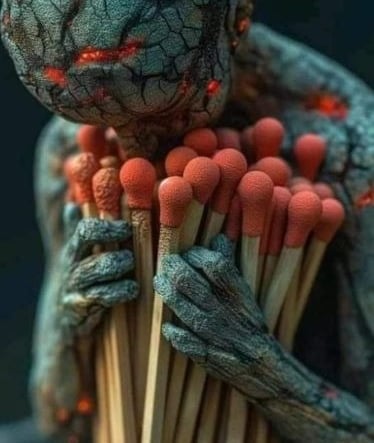A vacation won't cure burnout
A vacation won't cure burnout. Burnout syndrome is a pervasive issue in today's fast-paced and demanding world. Impacting individuals across various professions and walks of life. Often misconstrued as simply feeling tired or stressed.
HEALTH & WELLNESSEVERYDAY LIFE
K.N.
9/11/20253 min read


Burnout Syndrome vs. Depression: What’s the Difference?
Burnout is a common problem in our busy, demanding world. It affects people in many jobs and from all kinds of backgrounds. Burnout and depression are two words that people often mix up, and that’s understandable. They both cause tiredness, low motivation, and a feeling that life is hard, but they are not the same.
We’ve all felt tired on Monday mornings, work stress can be okay, but sometimes it gets worse. How do you know if what you feel is burnout, depression, or both? You’re not alone if you’ve wondered. Knowing the difference matters, because how we respond to burnout is not always the same as how we treat depression.
What Exactly Is Burnout?
Burnout is when you feel very tired in your body, emotions, and mind because of long-lasting stress. It often comes from work or caregiving. It builds up slowly when you have many tasks and not enough time to rest. Signs of burnout can be:
Emotional exhaustion: Always tired, even after you rest
Depersonalization: Feeling negative or detached from your work and maybe even the people around you.
Personal accomplishment: Feeling like nothing you do has meaning or value anymore.
Burnout mainly comes from where you work. Your tasks might be too many, your boss could be toxic, or your job may not match what you value. Burnout usually doesn’t affect every part of your life at once. It often starts slowly.
So What About Depression?
Depression is a mental health problem that is more than just feeling stressed. It can affect many parts of life, not just work. It changes how you feel, think, and do things every day. Rest or a vacation doesn’t always fix it. Common signs of depression are:
Very sad or empty feelings most of the time
Losing interest in things you used to enjoy
Sleep or appetite changes
Trouble concentrating
Guilty, worthless, or hopeless thoughts
In severe cases, thoughts about hurting yourself
Depression can happen for many reasons, not just at work like burnout. It can come from things like genes, brain chemistry, life events, or sometimes for no clear reason. Depression is a real illness that affects how your brain works, not just how you feel on the outside.Depression can happen even without a clear cause and often needs professional help, like therapy or medicine, or both.
The Impact of Time and Context
Another way to think about it is timing and context.
Burnout grows slowly from long-term work stress. It may get worse when things are extra busy and get a little better when you have time off.
Depression is different. It lasts longer and affects many parts of life. It doesn’t follow your work schedule, and symptoms can stay even on weekends, vacations, or when you’re away from stress.
Why People Confuse Them
The overlap is clear: both conditions can cause tiredness, lack of motivation, and feeling emotionally distant. The difference is in how wide their effects are. Burnout usually comes from specific jobs or places, like work. Depression affects many parts of life. Ways to recover:
Burnout often responds well to changes in work environment, better boundaries, stress management techniques, and sometimes a good old-fashioned break or career change.
Depression, while it can certainly be helped by lifestyle changes, often benefits from professional treatment like therapy or medication. Trying to fix depression with just vacation time or a new job might leave you feeling frustrated when those changes don't provide the relief you expected.
What You Can Do Right Now
If you want to know which category your experience fits in, start by looking for patterns. Keep a short mood and energy notebook for one or two weeks. Write down when you feel the worst and the best, and what things seem to make your symptoms worse or better.
Think about talking to a mental health professional—they are trained to help with these questions. Many therapists know about both workplace stress and depression, and they can help you understand what is happening and make a plan that fits you.
Don’t forget your support network. Talking with trusted friends, family, or coworkers can give you helpful insight into whether your problems are mainly from work or more widespread."
The Bottom Line
Burnout and depression are not the same. They can feel similar, but burnout comes from stress in a specific part of life. Depression is a bigger mental health condition that can stay the same even if things around you change.
If you feel burnt out, sad, or both, remember: what you’re feeling is real and okay. Both burnout and depression can make life harder and they need care.
You don’t have to handle this alone, and you don’t have to wait for things to get better by hoping they improve on their own.
Getting the right help can make a big difference. This can mean changing things at work, getting professional help, or both. Take your symptoms seriously, be kind to yourself as you work through them, and know that feeling better is possible. The hardest part is often taking the first step to understand what’s really going on.
Thanks for reading
Subscribe, read new articles and support our work along the way.
Similar Posts
Life Is Tough Make It Chillable!
LITMICH © 2025. All rights reserved.


Please follow us & like us:
Contact Us
